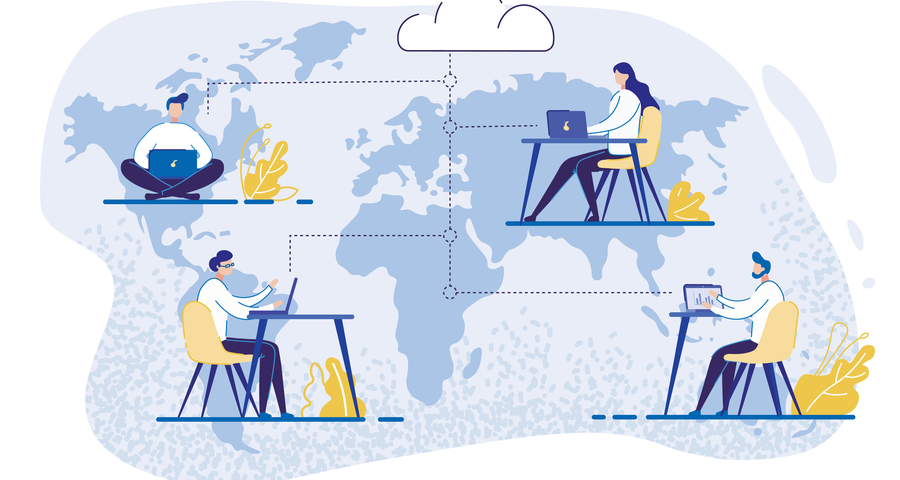COVID-19: HR's role in creating the business of the future
- 4 Min Read
HR’s responsibility during the COVID-19 pandemic is not only to support their business in the short term, but to use this opportunity to design the business of the future. Jon Ingham, HRD Thought Leader and author of ‘The Social Organization’, examines how the new future of work could unfold.
- Author: Jon Ingham
- Date published: Apr 8, 2020
- Categories

Many readers will currently be engaged in delivering urgent and essential if short-term and transactional responses to the coronavirus pandemic. Whilst it is important that these initiatives are undertaken effectively, just for their own sake, we should also be looking out for opportunities to take some short-term actions in ways which will build the type of organisation we want over the longer-term.
One example of this relates to the number of people suddenly remote who have been faced with the need to communicate largely or solely through digital technologies. Organisations which have been promoting use of digital and social communication tools for years with not that much success have now found adoption levels shooting up. The digital workplace has now become the organisation for many people.
Of course, organisational culture and behaviours are still lagging behind use of the digital tools. Not all managers are comfortable trusting their people without overseeing their work. For example, I have heard several examples of managers asking their team to connect on a 9am to 5pm Zoom meeting so the manager can still observe their progress.
Nevertheless, people are now using digital technologies to connect, interact and contribute in new and more flexible ways. For example, a number of my clients have seen a need for people to move more rapidly to implement short-term responses to the current crisis. This has often meant them connecting across the organisation to get new tasks done, or the same tasks performed in different ways. And in at least one case, people have found themselves able to act more quickly than they would have done when they were being supported, but perhaps also constrained, by being based in the same office.
Connections are starting to form across departments, business units, locations and geographies. However, most communication is still happening within traditional organisational units, especially functional departments. The digital tools allow much more distributed communication but we’re still mainly using the tools, and doing much of the communication, in largely centralised ways.
It has been clear for some time that organisations need to be more decentralised and / or distributed, and the tools people are now using has given them the ability to do this. However, making this change work needs some broader changes in the organisation, its culture and leadership behaviours.
This is largely about moving to a more distributed way of organising people and work. In particular, it is about looking at opportunities to shift the formal organisation architecture, building on the use of hierarchical functions with more use of horizontal teams, communities and distributed networks. And the simplest way of doing this, given the environment we’re in, is to encourage more distributed use of the digital tools people are now using, and seeking to organise around these new modes of working.
We don’t want to mandate the use of distributed networks in the way we have managed top-down hierarchies, but we can monitor digital communications and the formation of digital communities, and nudge and facilitate these as appropriate. As these groups develop, we can also begin to resource and support them as, but also differently to, the way we resource and support traditional organisational hierarchies.
This will mean that eventually, more work will be being performed through decentralised teams and communities and distributed networks, leading to a more innovative, flexible and resilient organisation. Our digital tools then become simply the mechanism that support these organisational groups rather than being the new organisation in themselves.
HR leaders need to take advantage of this opportunity, firstly to help ongoing communication during the pandemic, but also secondly, to build a more effective organisation which will be better aligned with the future of work.








